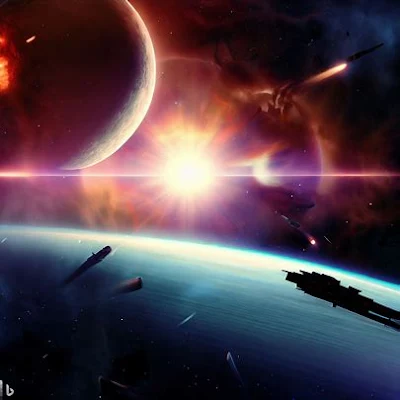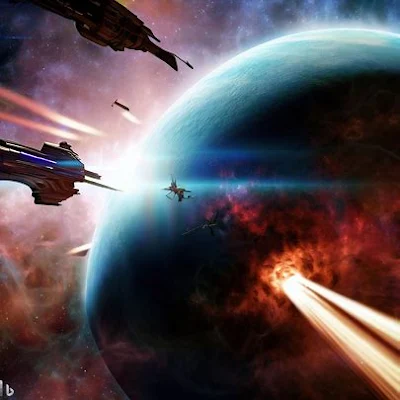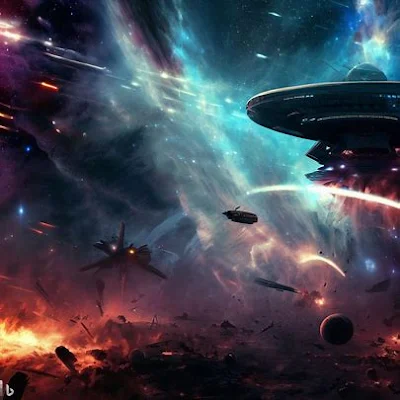What would an interstellar war be like?
Interstellar War: exploring the scenario of conflicts between stars
The concept of interstellar warfare sparks the imagination of many people, leading them to a world of possibilities and challenges that transcend our current understanding of space and technology.
 |
| What would an interstellar war be like? |
1. Scale and distance
An interstellar war would be a conflict in which civilizations from different star systems would confront each other. The first barrier to overcome would be the enormous distance between the stars. Interstellar distances are inconceivably vast, and with our current technologies, trips to distant star systems would take decades or even centuries. This poses a fundamental challenge in terms of logistics and response time. Fleets at war would have to address long-term strategies and develop revolutionary technologies to overcome these barriers.
2. Advanced technology
An interstellar war would require a level of technology that transcends our current understanding. Spaceships would need to be equipped with extremely advanced propulsion systems to accelerate to near-light speeds and navigate the vast void of interstellar space. The energy required to power these ships and maintain their life support systems would be astronomical and would require revolutionary forms of energy generation and storage.
3. Communication and strategy
Communication between distant star systems would be a critical challenge. Radio and light signals would take years to reach from one star system to another, making real-time coordination difficult. Fleets at war would have to anticipate enemy movements decades in advance and adjust their strategies accordingly. This could lead to an entirely new way of waging war, in which battles could be fought based on projections and assumptions about the enemy's actions.
4. Environmental and ethical impact
An interstellar war could have devastating consequences not only for the conflicting civilizations, but also for the surrounding space. Nuclear explosions, waste materials, and the destruction of planets or moons could seriously disrupt the ecology of space and affect other species and star systems. This aspect raises deep ethical questions about our responsibility as conscious beings in the universe and the implications of our actions in an intergalactic context.
5. Alliances and Intergalactic diplomacy
In an interstellar war scenario, diplomacy and alliances would play a crucial role. Civilizations could seek coalitions with other star systems to strengthen their position and resources. The formation of peace treaties and non-aggression agreements could be essential to avoiding large-scale destructive conflicts and fostering peaceful coexistence in the galaxy.
6. The exploration of the unknown
Interstellar war would also open the door to exploring the unknown. As ships travel through distant star systems, they could discover habitable planets, alien civilizations, and unique cosmic phenomena. This exploration could change our understanding of the universe and trigger scientific and cultural advances that transcend the conflict itself.
7. Philosophical reflections
The idea of interstellar war leads us to question our position in the cosmos and our interactions with other possible forms of intelligent life. How would we define ourselves as a species in an intergalactic context? What would be our core values and objectives? The prospect of interstellar war could prompt us to reevaluate our priorities and consider the long-term challenges facing humanity.
In conclusion, the idea of interstellar war invites us to explore a range of scientific, ethical and philosophical possibilities. Although current technology is a long way from allowing such a scenario, reflection on the challenges and dilemmas associated with a war between civilizations from different star systems offers us a window into a potentially fascinating and unknown future in the vast universe we inhabit.





Comments
Post a Comment